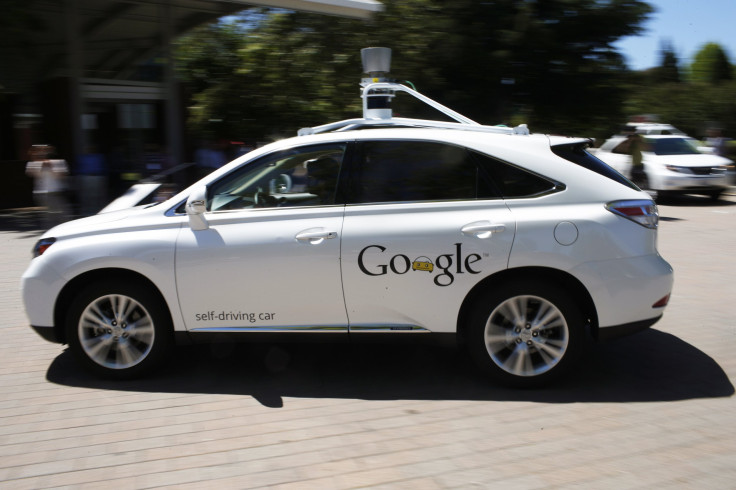Google Self-Driving Lexus Cuts Off Self-Driving Audi Triggering First Recorded Instance Of Robot Car Road Rage

Two self-driving cars reportedly had a close call in Palo Alto, California, Thursday. One vehicle was operated by Google, and the other by Delphi Automotive. Had there had been an accident, it would have been the first time two-self driving cars publicly collided. But because the two vehicles did not make contact, it is the first close call between two autonomous vehicles on public roads instead.
Because self-driving cars can't give each other the finger, Delphi director John Absmeier took to the press to clarify that the near-miss between the two robotic luxury SUVs was not his car's fault, claiming that it was Google's self-driving Lexus that cut off Delphi's Audi. He added that it was Delphi's Automated Driving System that avoided the crash.
From Reuters:
As the Delphi vehicle prepared to change lanes, a Google self-driving prototype - a Lexus RX400h crossover fitted with similar hardware and software - cut off the Audi, forcing it to abort the lane change, Absmeier said.
We've all been there. Aborted lane changes and getting cut off happens thousands of times every day on highways across the United States. It's a statistic certainty that as self-driving cars become more common there will be close calls and even accidents between multiple self-driving cars. But that doesn't necessarily mean that self-driving cars are unsafe or less safe than cars driven by humans.
Google's self-driving car program is well known, but Delphi's ADS is less famous outside the automotive industry. Delphi is one of the world's largest parts manufacturers and has been experimenting with autonomous vehicles since 1999, when it sold a radar system for smart cruise control to Jaguar. Since then, it's been developing its ADS technology in hope of packaging several independent safety systems together to sell to other auto manufacturers to add autonomous features. Delphi's ADS, or, in acronym form, DADS, drives like, well, a dad.
From Wired:
It’s super conservative, accelerating slowly and braking early. No speeding, even on the highway to match the speed of traffic. (It’s likely this was the first time I was in a car that followed the speed limit on a highway off ramp.) It doesn’t turn right on red, which subjects the test drivers to honking and the occasional middle finger from annoyed humans. These are settings Delphi’s engineers could easily change, but for now they’re playing it safe.
Ultimately, these two self-driving cars did what they were supposed to do: avoid accidents. If this same incident had happened with human drivers, it could have escalated into a shouting match. A spat between two self-driving cars might sound like a plot from HBO's "Silicon Valley," but it's a certainty that self-driving cars will eventually be getting into many of the situations that human drivers encounter every day. The next time a Lexus SUV cuts you off, don't bother honking: There might not be a human driving it.
© Copyright IBTimes 2024. All rights reserved.












